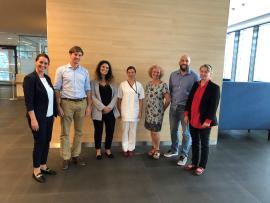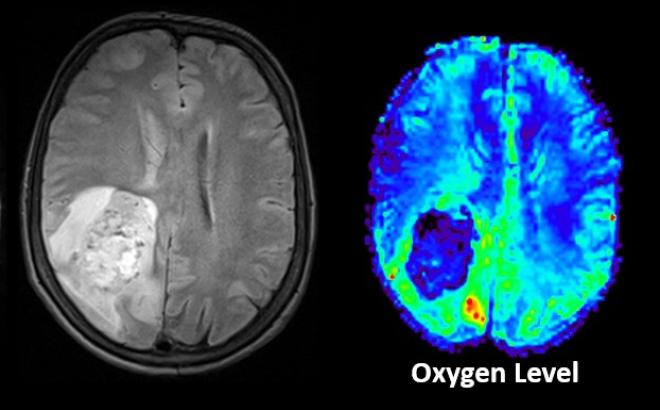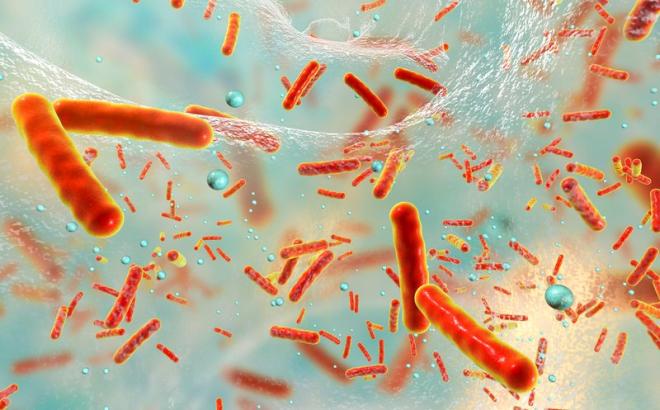Closing Conference on the Life Science Project "The Role of Phages in Antibiotic Resistance"
On Thursday, September 12, 2019, the closing event of the Life Science project "The role of phage in antibiotic resistance" took place at the University Hospital St. Pölten. During the one-day conference international scientists discussed the results of almost four years of research. Karl Landsteiner University of Health Sciences was part oft he research project.

Phages or bacteriophages are various groups of viruses that specialize in bacteria as host cells. These viruses are harmless to humans, but could be an effective alternative to bacterial infections in the fight against antibiotic resistance. In the Life Science project "The role of phage in antibiotic resistance" - funded by NÖ Forschungs- und Bildungsgesellschaft (NFB) - a research team devoted itself to this exciting topic for almost four years. Under the leadership of Friedrike Hilbert from the Institute of Food Safety, Food Technology and Veterinary Public Health at the University of Veterinary Medicine Vienna, the group dealt with the importance of gene transfer by phages for the development and stability of antibiotic resistance.
The Karl Landsteiner University became involved as a project partner in the clinical environment: The Portuguese molecular biologist Catia Pacifico, PhD candidate at the KL, analysed the presence of phages that infect E. coli bacteria at the clinical institute for hygiene and microbiology at the UK St. Pölten under the direction of Christoph Aspöck.
During the conference, the status quo in phage research was presented in five lectures and the challenges and opportunities of phage therapy in the human field were discussed in a panel discussion. In addition to researchers from the project team, international experts from Great Britain and Poland also gave presentations on their current research results.
Phage research in Great Britain and Poland
Molecular biologist Andrew David Millard from the University of Leicester is investigating the interaction of phages with their host, for example bacteria. The researcher uses methods such as metagenomics and genomics to identify the genes in the phage that open access to the host according to the key-lock principle.
The clinical microbiologist Zuzanna Drulis-Kawa, head of the Department of Pathogen Biology and Immunology at the Institute of Genetics and Microbiology at the University of Wroclaw, works with so-called lytic phages. These phages destroy the host cell by successively dissolving its membrane. Among other things, the researcher develops specific lytic phages for multi-resistant bacterial strains such as Klebsiella pneumonia or Pseudomonas aeruginosa. Both belong to the group of pathogenic rod bacteria, which cause problems especially in clinical environments.
In the panel discussion, Lorenzo Corsini, co-founder and managing director of the Viennese start-up company Phagmed Biopharma, provided interesting insights into research and product development in the field of phages. The company's primary goal is to validate phage therapy in clinical studies and to make it available to a broader group of patients through approval.
Details on the Life Science-project:
The role of phage in antibiotic resistance



